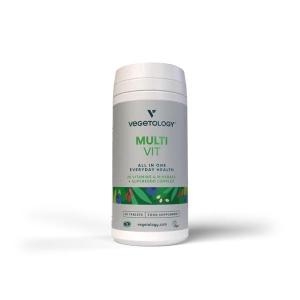
Back Pain or How Magnesium Deficiency Can Worsen Your Health

How Magnesium Deficiency Relates to Back Pain and What to Do About It
Back pain is among the most common health issues of our time. According to the World Health Organization, up to 80% of the population will experience some form of back pain during their lifetime. While most people associate this pain with poor posture, sedentary jobs, or wear and tear on the vertebrae, there is a lesser-known but equally significant factor: magnesium deficiency. Low levels of this essential mineral can be a hidden culprit contributing to the onset or worsening of back pain.
Magnesium – The Silent Hero of Our Health
Magnesium is the fourth most abundant mineral in the human body and is involved in over 300 biochemical processes. It plays a key role in muscle relaxation, nerve impulse transmission, energy production, and maintaining the proper balance of electrolytes. Without it, muscles, nerves, and even the heart would not function as they should. Yet, most people underestimate its intake.
In modern diets, often rich in processed foods, sugars, and refined grains, magnesium is present in insufficient amounts. Stress, excessive consumption of caffeine, alcohol, or the use of certain medications (such as diuretics or antacids) further increase magnesium consumption, contributing to its deficiency.
How does magnesium deficiency manifest? Fatigue, insomnia, muscle cramps, irritability... These are just a few symptoms. A less known but common consequence can also be back pain.
When Muscles and Nerves Cry for Help
Why would magnesium deficiency specifically cause back pain? The answer lies in its role in regulating the neuromuscular system. Magnesium helps keep muscles in a relaxed state. When its levels drop, there is increased muscle tension, cramps, and stiffness. This applies to the deep back muscles that stabilize the spine.
Additionally, low magnesium levels disrupt the balance between calcium and magnesium. While calcium stimulates muscle contractions, magnesium inhibits them. In its deficiency, muscles contract without the possibility of optimal relaxation, leading to painful cramps – often in the lower back or between the shoulder blades.
One specific example is a situation where a person feels "pulling" between the shoulder blades or "tight back" after a long day at the computer. Surprisingly, it's not always just about poor sitting posture or overload, but rather a metabolic imbalance, where low magnesium intake plays a role.
Try our natural products
Stress, Pain, and the Vicious Circle
Stress is another factor linking magnesium deficiency and back pain. Under stress, the body releases more adrenaline and cortisol, increasing magnesium consumption. Simultaneously, muscle stiffness occurs, especially in the neck, shoulders, and lower back – the most common sites of chronic back pain.
This results in a vicious circle: stress leads to magnesium loss, causing muscle tension and pain, which increases stress, consuming even more magnesium. The result is chronic back pain, which cannot be resolved with just physiotherapy or analgesics.
The psychosomatic dimension of this situation should not be overlooked. Constant pain affects mood, worsens sleep quality, and affects concentration. Magnesium not only works on muscles but also has a calming effect on the nervous system. It helps reduce anxiety and supports healthy sleep, which is important for the regeneration of both body and mind.
How Much Magnesium Does a Person Really Need?
The recommended daily intake of magnesium is around 300–400 mg for an adult. However, actual intake is often lower. Nutrient-rich foods containing magnesium are consumed less and less. Conversely, our bodies face more stress and strain, increasing the need for this mineral.
Natural sources of magnesium include:
- Leafy greens (spinach, Swiss chard)
- Nuts and seeds (pumpkin seeds, almonds)
- Legumes (lentils, chickpeas)
- Whole grains (buckwheat, quinoa)
- Dark chocolate (with at least 70% cocoa)
Interestingly, a study published in the American Journal of Clinical Nutrition found that up to 68% of Americans do not meet the recommended daily intake of magnesium. Similar figures can be expected in Europe.
If obtaining enough magnesium from diet is difficult, supplements come into play. Not all forms of magnesium are equally effective. Some, like magnesium oxide, have low bioavailability. In contrast, organic forms like citrate, malate, or bisglycinate are better utilized by the body. Besides tablets and capsules, there are also transdermal products – such as magnesium oils or baths, which allow absorption through the skin.
When Dietary Changes Help More Than a Visit to the Orthopedic
The story of thirty-year-old Hana, who works as an accountant, illustrates how the cause of back pain can be unexpected. "For several months, I was troubled by pain in the upper back. Physiotherapy only helped temporarily, and I didn't want to keep taking pills. It wasn't until visiting a nutritionist that I realized my diet lacked essential minerals. After recommendation, I started eating more leafy greens, seeds, and added magnesium supplements. After two weeks, I felt an improvement. Today, I have magnesium as part of my daily routine."
This example shows that it's not always necessary to seek the cause of pain solely in the mechanical overload of the body. Sometimes it's enough to adjust the internal balance of minerals so that the body can regenerate itself.
How to Support Magnesium Absorption and Naturally Relieve Back Pain
It's not just about what we eat, but also how well we absorb nutrients. Excessive intake of phosphates (from processed foods), chronic stress, or intestinal inflammation can impair magnesium absorption. For better effect, it's advisable to combine magnesium with vitamin B6, which supports its absorption.
Supplementing magnesium should be part of a broader approach to preventing back pain. Dietary changes, regular exercise, adequate sleep, stress reduction, and hydration are the cornerstones of a healthy back. A simple helper can be a short evening bath with Epsom salt, which relaxes muscles and supplies the body with necessary magnesium through the skin.
As Hippocrates said: "Let food be thy medicine." Perhaps it's time to stop asking what's wrong with our backs and start looking for answers in what our bodies lack. Because sometimes back pain is just a silent signal that our body lacks one of the most basic nutrients – magnesium. And it can be replenished in a natural and gentle way, supporting not only the spine but overall health.




